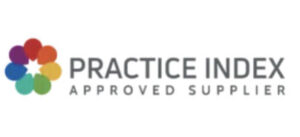Maximising practice profitability through QOF targets
According to NHS England, the objective of the Quality and Outcomes Framework (QOF) is to improve the care patients are given by rewarding practices for the quality of care they provide to their patients, based on several indicators across a range of key areas of clinical care and public health.
Accreditations and Partners



As complete remote solution providers, NCS are known to support practice workflow and provide consistent support.
We help provide:
- The very best Clinical Pharmacists and Pharmacy Technicians to support practice workflow
- Collaborate with your existing team to systematically work through QOF targets
- Stive to maximise your practice income as a primary objective
- Improve medication related inefficiencies
- Help streamline medical processes
Helping you meet QOF requirements
Quality and Outcomes Framework (QOF) Support for Preston Medical Practice

Background
Client: Preston Medical Practice
Service Provider: National Clinical Services (NCS)
Project Duration: 1 year
Objective: Help the practice meet its Quality and Outcomes Framework (QOF) targets
Preston Medical Practice was struggling to meet its Quality and Outcomes Framework (QOF) targets due to staff shortages and a backlog of tasks following the COVID-19 pandemic. The practice needed comprehensive support to ensure it met the QOF indicators, which are crucial for measuring the quality of care provided to patients and determining funding allocations.
To help the practice achieve these critical targets, National Clinical Services (NCS) appointed four full-time (WTE) pharmacists to support the practice over a one-year period.

Approach
NCS developed a structured plan to help Preston Medical Practice meet its QOF targets, with the focus on the following key areas:
- Chronic Disease Management: Pharmacists reviewed and managed patients with long-term conditions such as diabetes, asthma, COPD, and hypertension. This included updating medication plans and ensuring patients received the appropriate care in line with QOF indicators.
- Medication Reviews: The NCS team conducted medication reviews for patients on repeat prescriptions, especially those with polypharmacy (multiple medications), ensuring that treatment regimens were optimised and adhered to QOF standards for safety and effectiveness.
- Drug Monitoring: Pharmacists ensured that essential drug monitoring for high-risk medications (e.g. anticoagulants, DMARDs) was up to date, meeting QOF safety and efficacy requirements.
- QOF Alerts: The NCS team acted on all QOF alerts, including those for cardiovascular risk assessments, smoking cessation, and vaccinations. They ensured all patients received the appropriate interventions and follow-ups to comply with QOF indicators.
- Patient Records: NCS pharmacists worked to update and maintain accurate patient records, ensuring that all QOF-related data, such as blood pressure readings, cholesterol levels, and diabetes HbA1c results, were recorded in a timely and precise manner.
- Coordination with Clinical Staff: The pharmacists worked closely with the practice’s GPs, nurses, and administrative staff to ensure seamless integration and the efficient delivery of services.

Results
- QOF Targets Achieved: By the end of the 12-month period, Preston Medical Practice met all its QOF targets, ensuring continued funding and recognition for high-quality patient care.
- Improved Chronic Disease Management: Patients with long-term conditions received optimised care plans and timely reviews, leading to better health outcomes and a reduction in preventable complications.
- Accurate Drug Monitoring: The practice’s drug monitoring processes became fully compliant with QOF standards, improving patient safety and reducing the risk of adverse drug events.
- Increased Efficiency: The addition of four full-time pharmacists significantly improved the practice’s operational efficiency, reducing the workload on the GP and nursing teams and allowing them to focus on core clinical tasks.
- Up-to-Date Records: Patient records were fully updated, allowing for accurate reporting and auditing of QOF data, which also improved the practice’s readiness for future inspections.

Conclusion
National Clinical Services provided essential support to Preston Medical Practice by appointing four WTE pharmacists for one year to help the practice meet its QOF targets. This targeted approach led to improved chronic disease management, optimised medication use, accurate drug monitoring, and seamless integration into the practice’s operations. As a result, the practice not only achieved its QOF thresholds but also enhanced overall patient care and operational efficiency.
-
ICBs
-
PCNs
-
Pharmacists
Don’t just take our word for it…
“As Practice Manager, I want to express my gratitude to Yasin Patel for his invaluable support in establishing our remote Minor Illnesses Clinic. His professional service has been instrumental in addressing staffing challenges and providing additional coverage when needed. The clinically proven approach has significantly alleviated pressures on our team. Thank you, Yasin!”
Kerry - Practice Manager
Frequently asked questions
How much ARRS funding can a PCN benefit from?
A PCN is allocated a sum for an entire year based on its weighted population share of the total ARRS funding.
Although PCNs are able to claim up to this maximum sum each year, an underspend has commonly been reported.
From 1 October 2024, PCNs will be able to claim up to £65,838 (annual equivalent) per ARRS clinical pharmacist working at band 7-8a.
In outer London, this rises to £73,189, and £76,313 in inner London.
How much is the ARRS funding?
Funding for the new ARRS GP roles has been calculated at £1.303 multiplied by the PCN’s weighted population as of the start of 2024.
According to NHS England, the overall value of the ARRS in 2023/24 is in excess of £1billion.
The role of ARRS in primary care
According to NHS England, The ARRS scheme was introduced as a key part of the government’s manifesto commitment to improve access to general practice.
Through the scheme, primary care networks (PCNs) can claim reimbursement for the salaries (and some on costs) of 18 new roles within the multidisciplinary team selected to meet the needs of the local population.
By expanding general practice capacity, the scheme improves patient access, supports the delivery of new services, and widens the range of primary care services available.
How many ARRS roles are available?
There are around 18 roles available, including:
- Clinical Pharmacist
- Pharmacy Technician
- Health and Well-being Coach
- Dietician
- Podiatrist
- Paramedic
- Adult Mental Health Practitioner
- Children and Young People’s Mental Health Practitioner
- Nursing Associate
- Trainee Nursing Associate
- Occupational Therapist
- First-contact Physiotherapist
- Care Co-ordinator
- Physician Associate
- Social Prescribing Link Worker
- General Practice Assistant
- Digital and Transformation Lead
- Advanced Practitioner
What does the ARRS stand for in the NCS?
ARRS stands for The Additional Roles Reimbursement Scheme.
In August 2024, the government announced that £82 million of additional funding from the Department of Health and Social care budget would be used to enable changes to the ARRS scheme, which means that in 2024/25 it can be used to recruit newly qualified GPs into the NHS and practices will be reimbursed for their salary costs. However, this changes the nature of the scheme as it had been focused on ‘additional roles’ that broaden the skill mix and range of services available to patients in general practice rather than funding core GP roles.
Who are National Clinical Services and how can we help assist PCN’s with ARRS?
How does the application process for ARRS funding work?
Who is eligible for ARRS funding?
What is a PCN?
PCN stands for Primary Care Network.
A Primary Care Network (PCN) is a group of GP practices that collaborate closely with other health and social care staff and organisations to deliver integrated services to their local community.
This model enhances the ability to provide comprehensive, coordinated care tailored to the specific needs of the population they serve.
Across England, there are around 1,250 PCNs covering populations of, on average, 50,000 people – although this varies significantly, with more than a third of PCNs covering more than 50,000 people. In some cases, a single practice that has met the size requirements of a network can also function as a network.
Get in Touch
Choose a time that works best for you. Once you are done setting up a time, please check your email for your confirmation.
